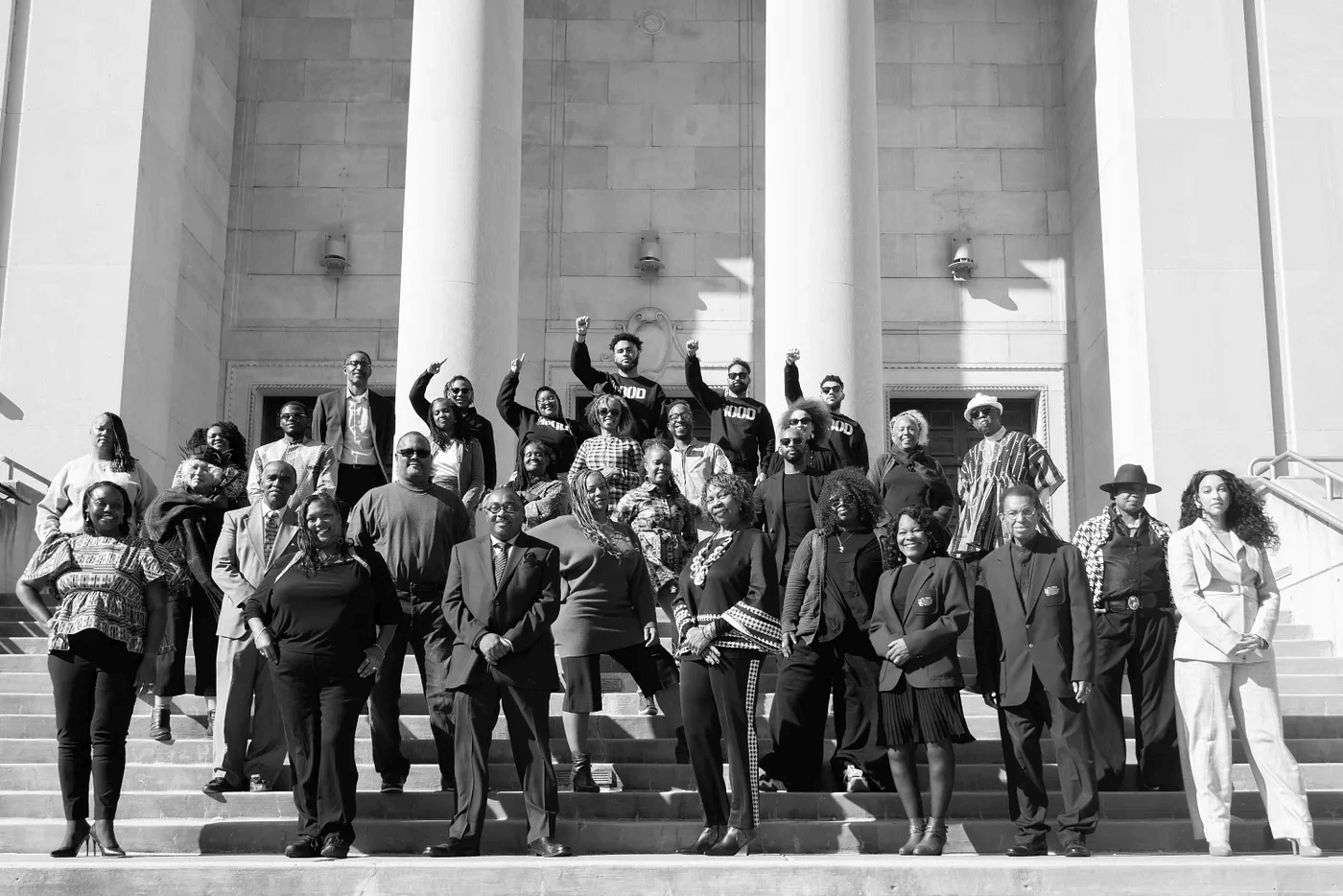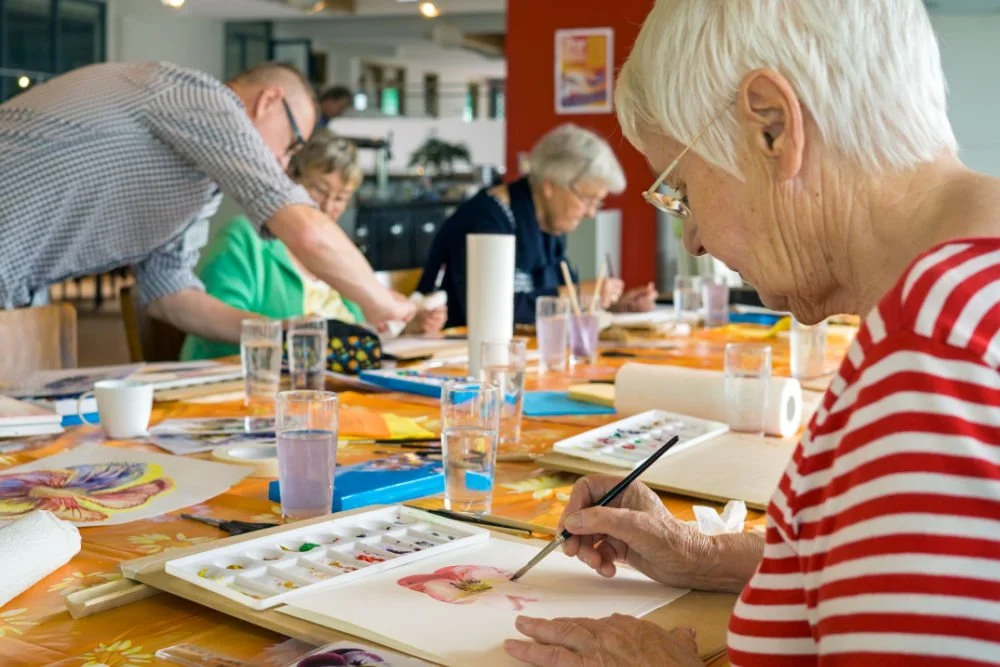Therapeutic Connection: A Funder Explores How the Arts Can Address Mental Health Issues
/Benjavisa Ruangvaree/shutterstock
Recent developments in the arts philanthropy space suggest that donors are increasingly viewing the arts experience as a means to an end.
To the Robert Rauschenberg Foundation and collector Agnes Gund, the arts can help to safely reduce the U.S. prison population. The Ford Foundation believes it can amplify immigrant stories. And the Andrew W. Mellon Foundation is interested in how the arts experience can foster greater empathy and cultural awareness.
Then there’s the Laurie M. Tisch Illumination Fund, whose new $10 million, multi-year initiative aims to use the arts to address mental health issues facing New Yorkers.
The Arts in Health Initiative launched last month with grants to eight New York City organizations working in disciplines like visual art, film, and dance. Programs and projects will address three distinct issues: mental illness stigma, trauma, and aging-related diseases. The fund will also convene grantee partners, health experts, New York City arts leaders, foundations, philanthropists, and community partners to share ideas and discuss the impact of their programs.
The idea that the visual arts can help treat individuals with mental health issues isn’t new, of course. Art therapy programs have been around for a long time and their clinical benefits are well-documented. As LMTIF president and founder Laurie M. Tisch noted, "decades of scientific study show that engagement in the arts provides cognitive, emotional, and physical health benefits for people, from youth to old age."
Donors agree. Speaking on the state of arts-related venture philanthropy, Rockefeller Philanthropy Advisors president and CEO Melissa Berman argued that more than ever, funders want the arts to support "physical and mental well-being."
J.P. Morgan Chase and the MetLife Foundation, for example, support organizations using the theater to treat veterans afflicted with PTSD. Meanwhile, funders like Gerard B. Lambert Foundation are bypassing museums and donating work to hospitals, citing the positive health benefits for patients.
But the Illumination Fund’s initiative—which loops in the traditionally under-leveraged fields of dance and film, while targeting a defined set of mental health issues—is nonetheless a relatively novel thing in the arts funding world.
One recipient, the Community Access & the Changing Minds Young Filmmaker Competition, will use film to combat mental health stigma among New York City youth. Another, the Art Therapy Project, uses group art-making as a therapeutic tool for people who have experienced severe traumas. And Dance for PD provides dance and movement workshops for people with Parkinson's disease
To better understand public thinking in this area, the Illumination Fund commissioned a poll to gauge the “attitudes about health-related attributes of the arts" and found, among other things, that 82 percent of respondents believed that the “arts can benefit people with age-related diseases such as Alzheimer’s and dementia."
The issue here isn't a lack of consensus around the therapeutic benefits of the arts; it's access to these benefits. And so the primary beneficiaries of the fund's work here will be, to quote Tisch, "underserved populations" that normally lack access to arts-related mental health services.
Viewed through this lens, the fund's initiative resembles some of the other socially-minded arts programs percolating throughout the sector.
The Shelley & Donald Rubin Foundation's latest round of social justice art giving underscored a heightened interest in engaging "at-risk communities." The foundation, according to executive and artistic director Sara Reisman, "wanted to ensure that high caliber artistic programming is made available to communities who are not conventionally served by arts philanthropy." The same sentiment clearly informs the Illumination Fund's new initiative.
It's not so surprising to see this effort coming from Laurie Tisch and her small team at the Illumination Fund. This grantmaker is all about expanding access and opportunity for New Yorkers, while Tisch, who is highly involved in the local arts scene, is drawn to programs that transcend any single category and address multiple issues. Since 2013, her fund has been engaged in another interesting, cross-cutting initiative, "Healthy Food & Community Change," that aims to "increase access, availability, affordability, and knowledge of healthy foods and promote healthy choices."
Not everyone is keen about how funders like Laurie Tisch and Shelley Rubin view the arts as a means to an end. What about just supporting the arts for its sake?
It's a fair question, but given the huge resources flowing into philanthropy right now, there's no reason to get hung up on "either/or" choices that channel a scarcity mentality. For example, in a recent piece looking at institutional funders' unwavering support for arts organizations in the Bay Area, I noted that the narrative surrounding the state of arts funding isn't as dire as conventional wisdom would have you believe. Lots of money is flowing for arts for its own sake.
Meanwhile, for those funders who want to have an impact on urgent social problems—and that includes most funders, by the way—the arts have emerged as a more promising means to this end than once was the case. The Illumination Fund's Arts in Health Initiative is a case in point, linking the arts to measurable mental health outcomes across underserved populations.







































